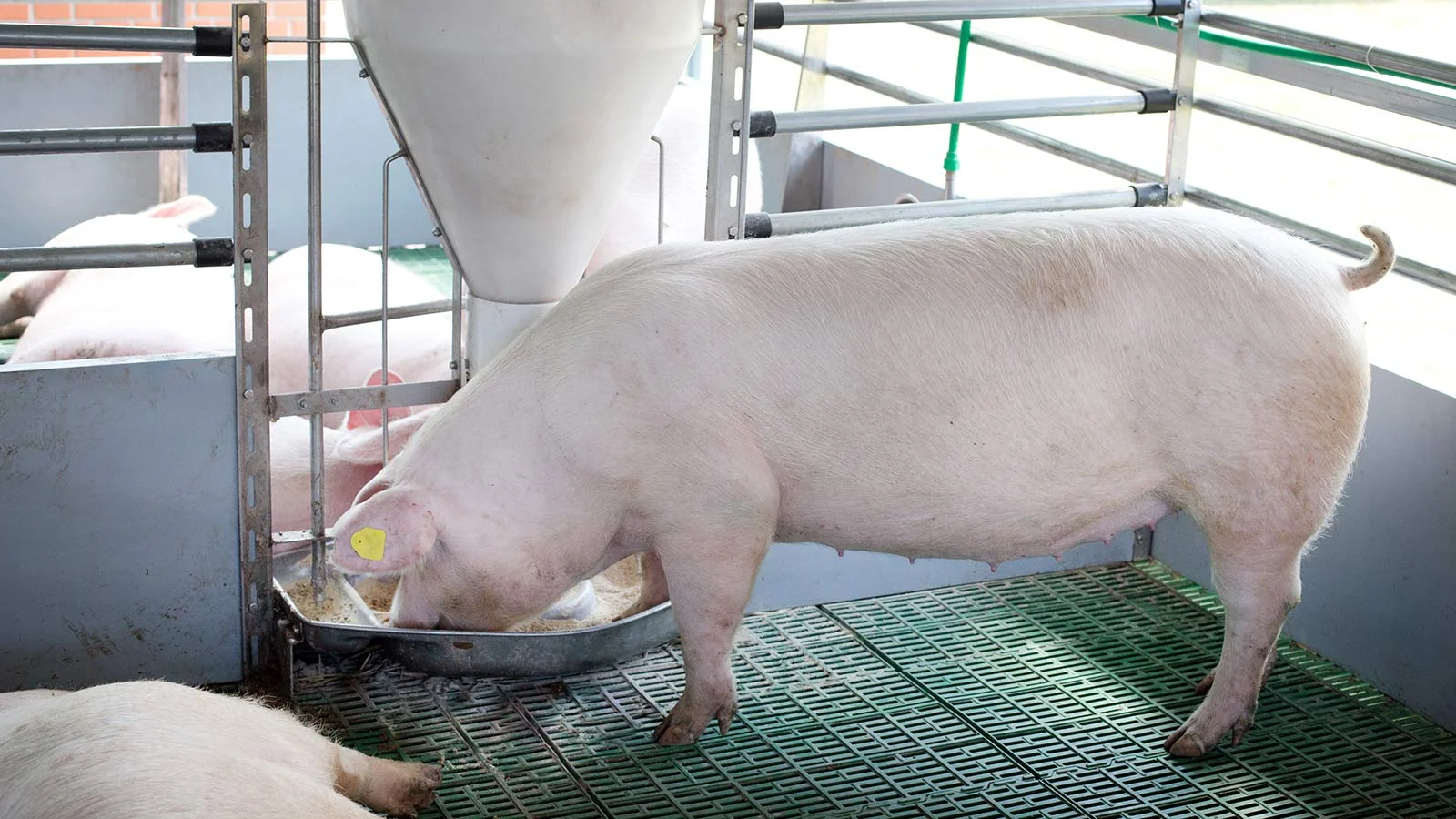
Swine Nutrition
Feed represents 60-75% of the cost of raising a pig to market weight.
Pigs are monogastric animals that eat an omnivorous diet, meaning they have one stomach with a digestive system similar to humans and eat food of both plant and animal origin.
Pigs require balanced nutrition that provides:
Energy (fats and carbohydrates) such as barley and wheat.
Protein sourced from soybean or canola meal.
Fiber increases satiety, promotes intestinal motility, and prevents constipation. This is beneficial in farrowing sows as constipated feces in the colon may physically block the birth canal and lead to stillborn piglets. However, a high fiber diet for growing piglets and lactating sows can be detrimental as the nutritional needs are high during these stages of the production cycle.
Vitamins and minerals are essential for the proper functioning of all physiological processes. Deficiencies, excesses and imbalances in vitamins and minerals can cause health and/or production issues.
Water is one of the most important components of swine’s diet. Growing pigs can drink upwards of 10 litres of water per day during hot weather. Clean water must be available and easily accessible at all times. The quality of this water should be regularly tested by water testing laboratories.
The following Swine Nutrition Guide, 2nd Edition was developed in the 1990’s by Dr. J.F. Patience, Dr. P. Thacker and Dr. C. DeLang at the Prairie Swine Centre and University of Saskatchewan and is still the industry standard for swine nutrition. The guide is still considered to be a valuable resource for swine nutrition today!
Swine Nutrition Guide
2nd edition

